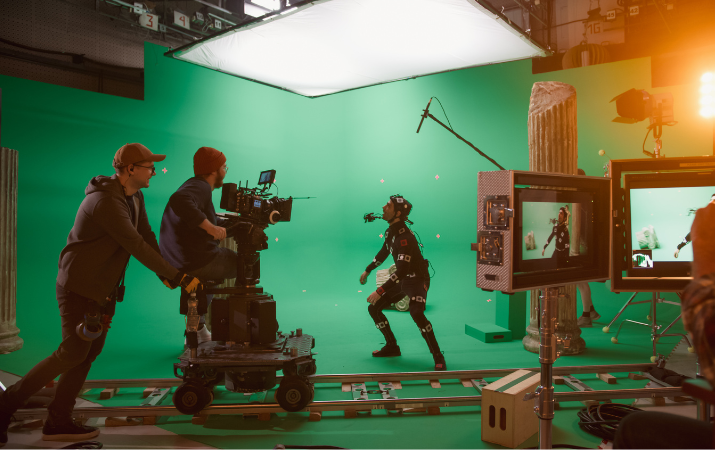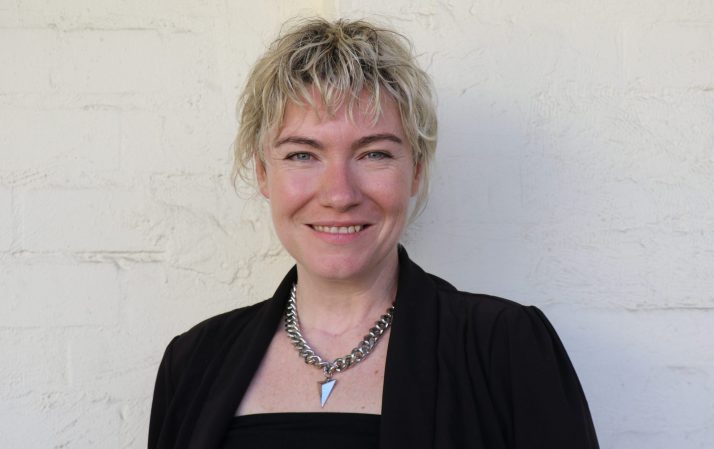MEAA Chief calls for fair wages and inclusive workplaces in Australia's booming screen sector

Media, Entertainment and Arts Alliance chief executive Erin Madeley argues that with the Australian screen industry on the cusp of a growth period, it can’t afford to forget the workforce who drives it forward. This article was originally published by Inside Film.
When Fran Drescher, the president of SAG-AFTRA, looked down the barrel of the camera and roared “the jig is up!” the hearts of unionists across the globe swelled with pride. It takes courage, heart and unity to call out and take on a necessary fight against some of the most powerful and profitable corporations on the planet.
The truth is the screen industry is powered by workers, most of whom earn a very modest living and have working conditions that are far from glamorous or sustainable.
This fight in the US is about the future of storytelling. We have all followed the reports of performers being offered a paltry $150 for a day’s work while their image and performance is scanned and then owned and able to be used or on-sold by these entertainment corporations forever through AI.
Or the writers who have worked on the most popular show on a streaming platform, only to be sent a residual cheque for literally a few cents. Or the actors who can’t qualify for the union’s health insurance because their earnings failed to reach the $US26,500 threshold.
This is not a sustainable model for workers in an industry that rakes in billions of dollars a year in box office and subscription revenues. After five months of strike action, the Writers Guild of America announced it had reached a deal with employers. We are hopeful that a fair deal will soon follow for our Screen Actors Guild colleagues.
Let’s be clear. No union member ever wants to go on strike. Sacrificing pay and shutting down the industry we love is always a last resort, but as working people know all too well, sometimes if we don’t act and stand together, we face losing so much more.
So what are creative workers fighting for? Of course, their own dignity, value and respect. Of course, their own job security.
But working people don’t only act out of self-interest. We here in Australia have seen union members stand up in the interests of the entire community. Teachers who stand up for our children by demanding class sizes that will allow them to deliver a quality education. Nurses, who stand up for our loved ones’ care through nurse-patient ratios. Transport workers who stand up for our safety on the road. Construction workers who stood up to developers and ensured the heritage of our cities was protected.
Creative workers are standing up for the kind of stories our families and communities deserve. Stories with humanity that reflect our ways of life and ensure that everyone sees themselves and their stories on our screens.
AI is one major emerging issue. Union members want to futureproof their jobs, but they also want to safeguard the quality of the stories that our audiences deserve. Despite its enormous potential, we reject that audiences now and in the future should have to accept stories that are made by robots that scrape and steal work from past creators. Our communities deserve stories that come from real life, and are developed and made with the integrity, innovation and creativity that only humans can deliver.
We are part of a global industry and large-scale international work plays a critical role in generating ongoing investment in infrastructure, skills development and research and development in Australia. That’s why MEAA members campaigned to secure the permanent 30 per cent Location Offset to ensure we can attract large scale productions to our shores.
But it’s just as important to our industry that we stand for the fundamental value that our
communities deserve storytelling that is uniquely ours.
As a busy working mum of two young kids, I know too well that screen time is a reality in my home. Our kids deserve to benefit from being stimulated from stories in their own accent. My friends’ teenagers deserve to wrestle with adolescence and feel seen through stories like the rebooted Heartbreak High. Seeing themselves on screen through classrooms that look like their own.
 MEAA Chief Executive Erin Madeley
MEAA Chief Executive Erin Madeley
We are also home to the oldest continuing living culture in the world. The richness and diversity of First Nations cultures is one all of us should value and respect, here and across the globe. It is their stories that are unique and fundamental to who we are and must continue to reach audiences through storytelling on screen.
We need action on making sure the same powerful corporations invest more in putting Australian stories on our screens, particularly on streaming platforms. Streamers’ combined revenues from Australian subscribers are fast approaching $5 billion a year but they currently have no obligation to invest in Australian stories.
MEAA is part of the Make It Australian campaign, which is advocating for a requirement that they invest a minimum of 20 per cent of that revenue in local content. That would create hundreds of additional hours of Australian content, thousands of additional jobs and ensure audiences have access to local stories.
In its Revive National Cultural Policy, the Albanese Government has committed to introduce a new local content requirement for streaming services by the middle of 2024, but we are yet to see the amount and what it’s comprised of.
MEAA members have always campaigned for the right government policies to support our industry. With the increased Location Offset, local content rules for streaming services due within the next 12 months, and the quick reversal of potentially disastrous budget cuts in NSW, our industry is on the cusp of a growth period.
But we also need to acknowledge the other core factor that will truly deliver a thriving screen industry: its workforce.
We need to recognise that the people who create and deliver our stories are human beings who need a sustainable work-life balance.
If we don’t, we will be unable to attract and retain the qualified and experienced workers needed to make the most of this growth potential, and opportunities will be lost.
Excessive, unpredictable and unsocial hours come up time and time again as one of the top concerns for our screen crew members. The impact of fatigue not only puts their lives at risk when they get behind the wheel, it impacts their physical and mental health, and inevitably affects the thousands of partners and family members that support screen workers.
Excessive working hours and other costs that are placed on workers are contributing to an industry skills shortage. Our screen industry is dependent on experienced, longstanding workers to pass on the skills to a new generation. The longer we ignore the unsustainable demands placed on workers, the more we risk losing our highly experienced skilled workforce and a new generation that will look to other industries that provide safe, sustainable working conditions.
Another key factor is our ability to grow the diverse workforce we need both in front of and behind the camera to deliver the stories that truly reflect Australia. We need more First Nations people, people of colour, women, carers, and disabled, neurodivergent, trans, non-binary, gender diverse and senior workers and artists to work and tell these stories both authentically and with authority.
We must ensure that workers are rewarded for the culture and identity they bring to enrich the stories we watch, but not at the cost of their own safety and wellbeing. The real cost of cultural incompetence in our workplaces is borne by the worker who is left trying to rebuild and repair from trauma they should never have been exposed to. This means our industry must provide a workplace culture that is inclusive, accessible and culturally safe.
The Federal Government’s establishment of the Creative Workplaces body within Creative Australia will promote fair, safe, and respectful workplaces. It’s a huge opportunity for our industry to work together to address longstanding issues and make our workplaces safer, more accessible and more sustainable.
As the recent screen funding cuts in NSW showed, MEAA members will always stand up and fight for what is right when the situation calls for it.
While there is work to do, our membership is determined to work with all stakeholders to ensure investment in production and decent working conditions go hand in hand. The future of our great Australian screen industry depends on it.